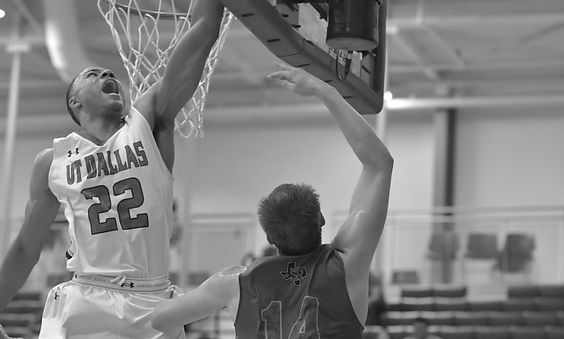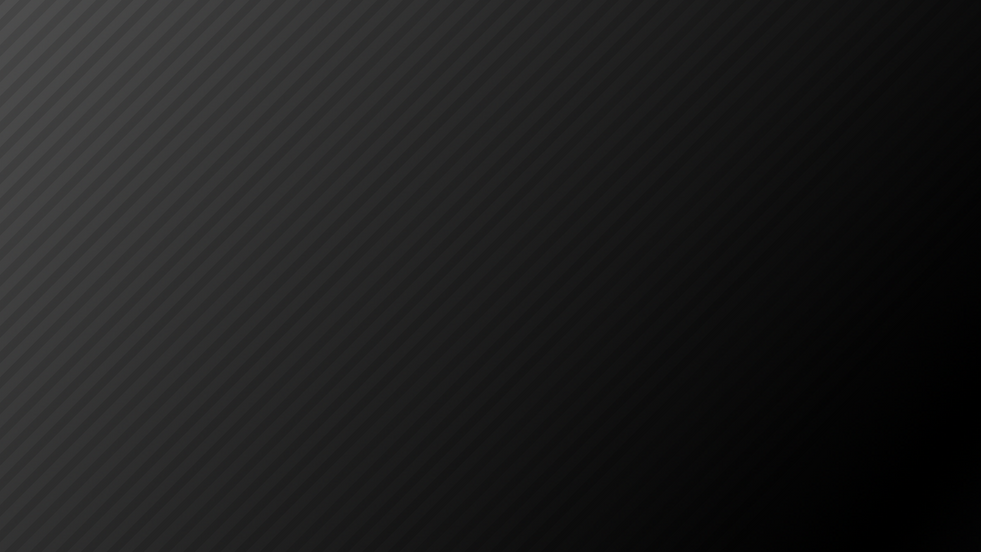
DIMITRIUS UNDERWOOD
BASKETBALL | HAND INJURY

What's Up Y'all!
I'm Dimitrius.
I go to University of Texas at Dallas and I'm a senior. I am a finance major and I've been playing basketball pretty much all my life. I've played three years at UTD and going into my senior year.


Watch Dimitrius's story here:

FULL INTERVIEW
My name is Dimitrius Underwood. I'm a senior at UTD. I am a finance major. I've been playing basketball pretty much all my life I've played 3 years at UTD and I'm going into my senior year.
Explain details on how your injury happened.
So it happened last December. We were in a game against Mary Hardin Baylor and I took a charge and fell back on my wrist. At the time, I thought it was just a sprain after talking to the trainers. So I kind of just blew it off like it was fine and I finished the season. There was pain throughout the season and it was just like, okay, I don't think it's that bad. I'll just rest after the season. Fast forward to a couple months into the summer after the season, it was still bothering me so I went to the doctor got it checked out. It turned out to be a torn ligament.
What was your immediate reaction when they told you that it was torn?
So right away, my heart kind of sank a little bit. I was like "aww crap". And so when they told me that they said, "It's been a long time. Usually when this stuff happens, you want to come in right away and get it fixed and it will been fine, but because it's been three months, there's not much we can do about it." He was kind of skeptical about going in for surgery. So it was just kind of up the air. So what did we try first? He said there was a reconstruction option. And he was saying, if I did that, then it would be unlikely that I'll be able to play again. So I didn't want to do that. He said there was an option to go in and do some kind of repair as well.
So after he gave you those options, what did you decide to do?
So I decided to go in and do the repair. I was going on a trip to play with Athletes in Action. So I did it when I came back and went to the doctor, had the surgery setup, and then he calls me in right before the surgery like an hour before and says "Hey, I don't know if we can do the surgery. I don't". He said that he talked to one of his doctor buddies and they didn't think that there's a high probability of success. So I said "Okay, what does that mean?" He said, "we can go in and do some debridement and clean it up." I said, "well, I just want to fix it." Basically, he was just saying the best thing for me was just to try to play on it and maybe get an injection. And just hope I can play as long as I can on it.
I actually ended up meeting with another doctor who gave me a different option, which was an appending technique. But even with that, he said there was a 60% chance of success. So still kind of up in the air, but I liked that option better. So I did the debridement, and then ended up going in two weeks later to do the pinning. And then that was the process that occurred.
The process took almost three to four months because in the first surgery, there was two week span and then I had the second surgery. I just literally got my cast off a week ago. So it's been up since July and it's late September right now.
During that process, how would you describe your frustration, especially with the doctors changing and them changing their minds.
My frustration, it was kind of like a roller coaster. I'd wake up one day and be disappointed and just having different thoughts like, I may never play again, my career could be over. It's just like feeling good sometimes and other times just being down, not really having a grip on those emotions. I would just call my mom sometimes and just spit out all my feelings and she'd say "relax, calm down, you're fine." It was hard because I had put a lot of hope in basketball and where I wanted to play at the next level and how I wanted to make a career out of it. And then for someone to tell me that I may never play again. It was just like, a shot, you know.
Was there anything else that really helped you? Did you try anything else?
Basketball when I was healthy took up a lot of my time, like I'm in the gym all the time training. So I just have a lot more free time. And I'm a spiritual person. So just the injury really allowed me to just really focus on God, that's kind of where I find a lot of peace. So just pushing me closer to him and just asking the question of, "why is this happening? Why am I going through this?" And just finding comfort in that and I think that through that He's really shown me that basketball is not promised and I have to have an open hand about it. Like, it's a great gift. And he's blessed me with a lot of talent to be good at it. But at the end of the day, it's not something that will last or sustain me forever. So just being open about it, you know, and, and trusting him in that.
So is your perspective about basketball changed?
Yeah, my perspective has definitely changed a lot. Looking back on it, I hate that it happened, but I can appreciate it. I think that if I do get to play again, fully healthy, that I'll just be more grateful about it and more open about it. And not just consider like it an idol in my life, something I need, it will just be like a good gift from God. And then also my motive behind playing the game. I think in the past it had been How can you make it to the next level? How can you glorify yourself? Give people to see how good you are. And now it's like, hey, you can lose this at any moment use this just as an opportunity to just express like your gratitude to God and this the gifts that he's given you and just having an open hand about it.
What would you say is the biggest mental roadblock you encountered during your recovery? What do you feel caused most of your frustration Was it the pain? Was it how much it sucked to do like rehab constantly?
I think it was the time that I had, I had so much time. I would just kind of sit in my room and then we're just sitting here and we're just thinking all the time. So the just having all the time I had was just really boring and I felt kind of like okay, what am I doing? And it kind of showed me that like basketball was consuming a lot or too much of my life and I needed to kind of just find more purpose and the pain was okay, that was just kind of that was something that came and went.
Who was your support system those injuries, besides your mom? Who did you surround yourself with? Or did you want to just be alone?
A little bit of both. Really, only my mom and my stepdad and my sister. So I in a way, but I was alone most of the time. Yeah, just so support system. I don't know if I'd say I really had one. But my mom was my biggest supporter in that. But it was it was a lot of a lot of solitude kind of.
Did you like the solitude looking back at it?
I don't know if I liked it, it was just kind of what I had. And you know, people can only be so supportive like Yeah, you got hurt but they're not going to like devote their time to just making sure you feel good. So I think that just being alone it kind of in a way helped me just rely on God more honestly. My relationship with my family definitely improved. Just my mom's always been a good, the best supporter I have. So she's gonna just tell me always be positive and she wants to see me be successful more than I want to be successful. So just knowing that you have people in your corner and people who are going to support you and fight for you and look out for you.
Was the journey to recovery harder than you initially thought it would be? In other words, how mentally prepared were you for recovery?
So I'm actually still kind of in the recovery process. Probably will not be cleared until midway halfway through the season, so that's kind of a downer in a way but as far as the process, it's really slow and gradual. And I'm even today still in my head about it because it's like The doctor says, "The thing about the surgery is we don't know if it's going to work. It's kind of just how you feel." So just going through everyday like does it hurt today or is it okay? And just trying not to be in my head like basketball is great, but it's not life.
Now that you've been working on overcoming your injury would you have wanted to change anything? In terms of looking back at what you have done so far, would you want to change anything or do you regret doing something?
Well, one, I regret not going to the doctor immediately. That's just kind of like surface level just because if something's bothering you, I think you should definitely get it checked out. But as far as the process of surgery, rehab recovery, just being more trusting of people, I guess my mom was telling me the whole time you need to get it checked out you need to do this and I was kind of like, now I do it my way, this is fine. And I just need to be more open to other people trying to help me.
How or does your injury affect your quality of life to this day? Is it affecting your everyday life like just using stuff?
Yeah, so after the surgery it definitely did. I was in a brace in a cast. I've been in something for like three months. So just not being able to brush my teeth or shower without a bag of my hand. And even now, I don't have the full range of motion. And there's still some pain with certain things. So yeah, it's definitely affected my quality of life but it's definitely getting better.
I'm hopeful but I honestly don't know if I'll ever get back to fully just because I've even had like surgery on my thumb and it's not even fully healed. I don't know if I'll fully be back but or have that full range of motion.
What is something positive that emerged from your injury?
Something positive that emerged from my injury would be just like I said, growing closer Christ just getting to see that basketball, like I was saying basketball is a good gift, but it's not ultimate. And I think that it showed, it really showed me that what I was putting my hope in. And it It showed me that it's not a good thing to put my hope in. It's going to stop one day with injuries. And even then it won't be enough. So I'm actually really grateful for that experience. and to this day, I just feel like I'm at a place where if I could never play again, I'd be sad, but I'd be content with with what I have in life and where I am. Yeah, so honestly, I could say in a way it's more of a blessing. Like even though it doesn't look like that on the surface level.
Top 3 Recovery Tips
So three tips I give to someone who are like trying to recover mentally, I would just say like, trust the people around you. Be open to advice and let them enter in to that space with you because it's definitely easier to walk through it with other people. Another tip I give is just explore your purpose outside of your sport. I think there's a lot more to life than just sports and just being good at a sport. So just try to see maybe why that happened to you and find something in life that's more meaningful, more purposeful, and for me that's been just pursuing God, pursuing Jesus. And then the third advice I'd give is to have an open hand about sports. It's a good gift and just don't take it for granted while you have it, work hard every day in practice, and just feel the weight of the gift that you have. Being able to be a college athlete or a high school athlete every day is just a gift in a blessing.
So I tore a ligament in my wrist, I think it's called a scaphoid lunate. And so they went in, kind of here and on the side and they put in four pins. And I had those pins in for eight weeks and, I couldn't move my wrist, it was pretty painful and then they took those out. And so the hope is that the pins promote healing in the ligament and so it's just now just rehabbing it and trying to get 100%
